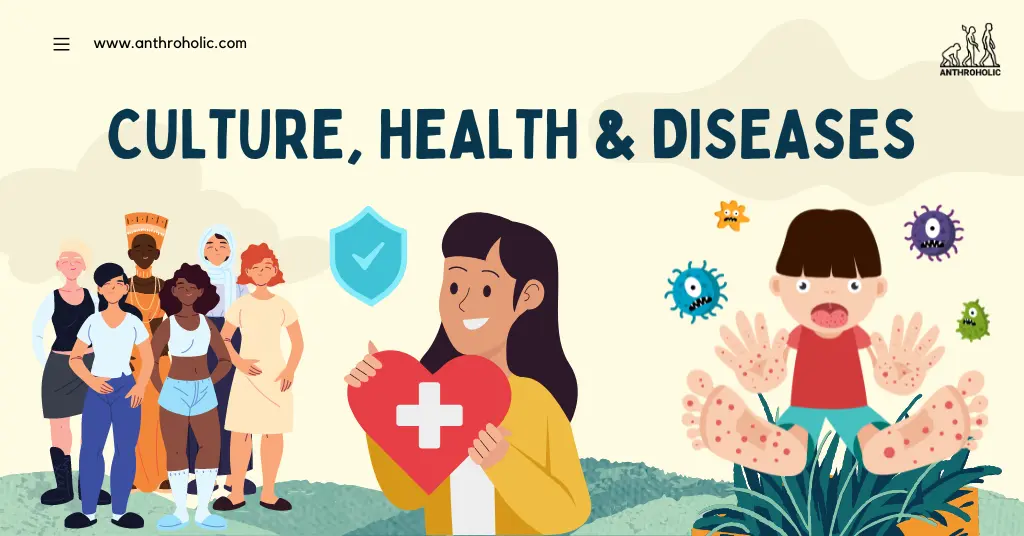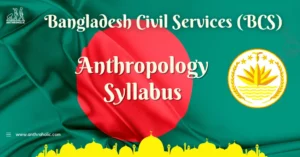AI Answer Evaluation Platform Live Now. Try Free Answer Evaluation Now
Relationship among Culture Health and Disease
The relationship between culture health and disease is a complex and intricate one. Culture shapes beliefs, attitudes, and practices relating to health and illness, and these, in turn, influence the prevalence, diagnosis, and management of diseases.

Theoretical Background
Cultural Influences on Health Beliefs and Practices
Culture is a dynamic and multifaceted system of shared values, beliefs, and practices [1]. These elements deeply impact how individuals perceive and approach health and well-being.
Table 1: Examples of Cultural Influences on Health Beliefs and Practices
| Culture | Health Belief | Common Practice |
|---|---|---|
| Western | Emphasis on biomedical models | Utilization of modern medicine |
| Traditional Asian | Holistic approach | Use of herbal medicine |
| African | Community-centered approach | Traditional healing practices |
Interplay between Culture and Disease
Cultural practices may either promote health or facilitate the spread of disease. For instance, cultural norms around hygiene, diet, and physical activity profoundly influence individual and community health [2].
Culture, Health Disparities, and Inequity
Health disparities across different cultural groups are often a result of systemic inequalities, including unequal access to healthcare resources and culturally insensitive healthcare systems [3]. Understanding and addressing these disparities require a nuanced examination of cultural norms, values, and beliefs.
Table 2: Examples of Health Disparities
| Cultural Group | Health Disparity |
|---|---|
| Indigenous Peoples | Higher rates of chronic diseases |
| African Americans | Higher mortality rates for certain conditions |
| Women in some cultures | Limited access to reproductive healthcare |
Traditional Medicine and Healing Practices
Many cultures rely on traditional medicine and healing practices, which are deeply rooted in their beliefs, values, and historical context [4]. The relationship between traditional medicine and Western medicine can be complementary, integrative, or conflicting.
Case Studies of Traditional Healing Practices
Ayurveda in India
Ayurveda, a holistic system of medicine in India, is based on balancing the body’s energies. It emphasizes a combination of diet, herbal treatment, and yogic practices.
Traditional Chinese Medicine
Traditional Chinese Medicine (TCM) views the body as a system of interconnected energies. Acupuncture, herbal remedies, and Tai Chi are vital components of TCM.
Cross-Cultural Communication in Healthcare
Effective communication between healthcare providers and patients is essential for optimal care. Language barriers, cultural misunderstandings, and biases can lead to misdiagnosis, inappropriate treatment, and reduced patient satisfaction.
Strategies for Effective Cross-Cultural Communication
- Cultural Sensitivity Training: Educating healthcare professionals about various cultural beliefs and practices can promote understanding and empathy.
- Use of Interpreters: Implementing professional interpreters can help overcome language barriers.
- Patient-Centered Care: Encouraging healthcare providers to see the patient’s perspective can foster trust and improve the patient-provider relationship.
Culture and Mental Health
Culture plays a significant role in defining mental health and influences how symptoms are expressed, diagnosed, and treated. Understanding the cultural context is crucial for effective mental health care.
Western vs. Non-Western Approaches to Mental Health
| Culture | Approach to Mental Health |
|---|---|
| Western | Focuses on individual pathology |
| Non-Western | Often incorporates community and spirituality |
Cultural Stigma and Mental Health
Cultural attitudes towards mental health can create stigma, making it difficult for individuals to seek help. For example, in some cultures, mental illness may be seen as a sign of weakness or as a spiritual issue.
Culture and Nutrition
Dietary habits are deeply influenced by cultural norms, affecting both health and disease. Understanding cultural dietary practices can inform public health interventions.
Table 3: Examples of Cultural Dietary Practices
| Culture | Dietary Practice |
|---|---|
| Mediterranean | Emphasis on olive oil, fish, and vegetables |
| Japanese | Consumption of fish, rice, and seaweed |
| American | High consumption of meat and processed foods |
Culture and Genetic Influences on Disease
Culture intersects with genetic predispositions in complex ways. Certain genetic traits that confer disease susceptibility or resistance are often prevalent within specific cultural or ethnic groups.
Examples of Genetic Influences
- Sickle Cell Disease: Prevalent in African populations, provides resistance to malaria.
- Lactose Intolerance: More common in Asian and African populations.
The Role of Anthropology in Health
Anthropologists play a vital role in understanding the nuanced relationship between culture, health, and disease. Through ethnographic research, anthropologists can uncover hidden cultural dynamics that influence health outcomes.
Anthropological Methods in Health Research
- Participant Observation: Involves living within a community to understand health beliefs and practices from an insider’s perspective.
- In-depth Interviews: Allows for exploration of individual experiences and cultural beliefs.
Conclusion
The complex interplay between culture, health, and disease necessitates a holistic and culturally sensitive approach to healthcare. By acknowledging and embracing cultural diversity, healthcare professionals can foster better patient relationships, reduce health disparities, and contribute to global health equity.
References
[1] Geertz, C. (1973). The Interpretation of Cultures. Basic Books. https://web.mit.edu/allanmc/www/geertz.pdf
[2] Farmer, P. (1999). Infections and Inequalities: The Modern Plagues. University of California Press.
[3] Marmot, M. (2005). Social Determinants of Health Inequalities. Lancet, 365(9464), 1099-1104.
[4] WHO. (2008). Traditional Medicine. World Health Organization. https://www.who.int/news-room/questions-and-answers/item/traditional-medicine




